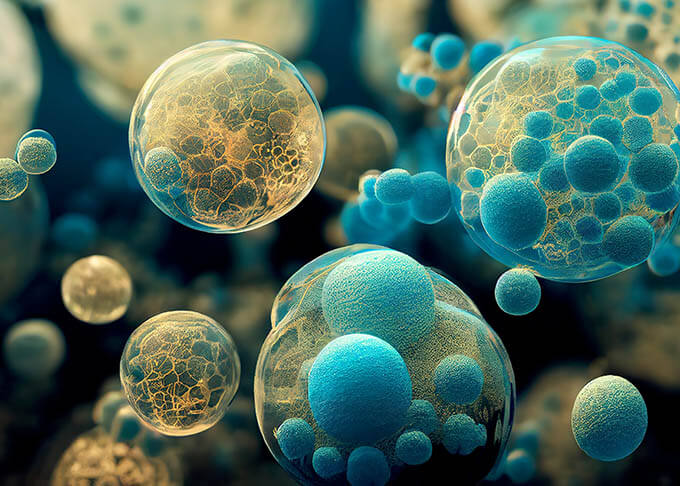CD BioSciences, a US-based biotechnology company focusing on the development of imaging technology, has announced the launch of its new range of In Vivo Imaging Reagents, including fluorescent imaging probes, fluorescent labeling dyes, fluorescent imaging panels, and fluorescent nanoparticles, designed to provide researchers with a non-invasive approach to visualize and quantify cellular and biological functions in living systems.
In vivo fluorescence imaging is a non-invasive method for visualizing and quantifying cellular and biological functions. Using these biospecific, validated fluorescent probes, dyes and panels, scientists can visualize disease pathogenesis and related biological processes in living systems. In certain preclinical studies, fluorescence can reveal disease processes and therapeutic effects earlier and more powerfully, making it an attractive alternative to standard imaging methods. There are many advantages to using in vivo fluorescence imaging for scientific research.
CD BioSciences now provides customers with fluorescent imaging probes, fluorescent label dyes, fluorescent imaging plates and fluorescent nanoparticles for scientific research. In addition, the company offers bioluminescent substrates and lentiviral particles, bioluminescent tumor cell lines, bioluminescent bacterial strains, and microbubble contrast agents. The company’s commitment to innovation and quality is evident in the development of these reagents, which are expected to revolutionize the field of in vivo imaging.
For example, the Pan Cathepsin Fluorescent Probe (Catalog NO: VIR030106) can be used for imaging various disease-related events. Proteases play an important role in protein regulation. Lysosomal proteases are a class of proteases whose altered activity predicts many disease-related processes such as cancer, inflammation, arthritis, and cardiovascular disease. The progression and severity of these diseases can be tracked and analyzed by detecting and quantifying normal and altered protease chelator protein activities in vivo. Pan Cathepsin fluorescent probes are versatile pan-trypsin-activatable near-infrared agents for imaging various disease-related events. These activatable probes are optically silent in the intact state and become highly fluorescent upon protease-mediated cleavage and activation.
Fluorescent Cell Labeling Dye (Catalog NO: VIR030201) allows the labeling and tracking of mammalian cells, including stem cells, T cells, and macrophages. This product is a near-infrared fluorescent lipophilic labeling dye that intercalates into the cell membrane. With high solubility and excellent stability, Fluorescent Cell Labeling Dye provides excellent brightness and uniform labeling, making it ideal for in vitro cell detection and longitudinal in vivo cell tracking in a variety of applications, including inflammation, immunology, and stem cell research.
CD BioSciences offers Oncology Fluorescent Imaging Panel (Catalog NO: VIR030306) to help customers maximize in vivo imaging preclinical cancer research. The development of novel, safer cancer therapies that target specific molecular targets and broader disease-related processes is critical in the fight against this disease. This new panel contains six carefully selected fluorescent probes that enable researchers to visualize and quantify various tumor-associated biological processes, providing a better understanding of the disease and aiding in the development of new cancer therapies.
For more information about CD BioSciences’ new range of In Vivo Imaging Reagents, please visit https://www.bioimagingtech.com/in-vivo-imaging-reagents.html.
About CD BioSciences
CD BioSciences is a biotechnology company committed to the development of imaging technology for many years. Its scientists can utilize high-content imaging, nanoparticle imaging, imaging flow cytometry, time-lapse imaging, and other techniques to image cell structure, cell migration, cell proliferation, pathogen infection mechanisms, and interactions between protein molecules.












